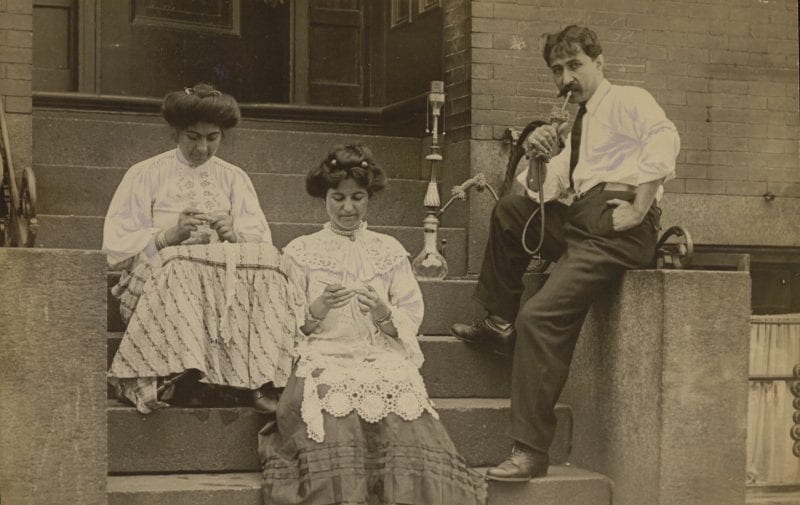Author: Amanda McKay, Archives Assistant and graduate student in the English MA program at UMass Boston

In the early 1980s, UMass Boston’s William Joiner Institute for the Study of War and Social Consequences launched a writers’ workshop focused on war and its aftermath. The workshop included classes, discussions, readings, and much more. Since the start of the workshop, the Joiner Institute has worked to transform thoughts, feelings, and experiences relating to war into artistic expression through writing, but these workshops soon became more than that.

Digitized photographs of the writers’ workshop are available through Healey Library’s Open Archives website. These photographs, taken by long-time UMass Boston faculty member Melissa Shook between circa 1996-2001, reveal the personal and collaborative efforts of the writers’ workshop, and of the Joiner Institute as a whole. The workshop became more than it set out to be; it created connections among members and provided a sense of community. Shook’s long-standing connection to and intimate documentation of the university program show how art and memory were powerfully intertwined. Shook’s life and legacy live on through Healey Library’s Melissa Shook papers.

The Joiner Institute’s writers’ workshop series was incredibly important for participants, but it was only one part of the institute’s mission, which is “to inform, develop, and implement equitable policies, programs, and pathways to help ensure the health, safety, well-being and success of veterans, their families, and others impacted by war or military service, without exception.” Be sure to check out the Joiner Institute website to learn more, and visit the University Archives and Special Collections department to view the Joiner Institute records and learn about their fascinating history and writers’ workshop.
Contact library.archives@umb.edu to schedule a research appointment.
References:
“Joiner Institute Writers’ Workshop Photographs.” University Archives and Special Collections, Joseph P. Healey Library, University of Massachusetts Boston. Accessed July 17, 2025. https://openarchives.umb.edu/digital/collection/joiner.
Nelson, Caleb. “How Can We Save The Joiner Institute?” Veteran Art Movement. June 17, 2018. https://www.veteran-art-movement.net/evam-blog/can-we-save-the-joiner-institute.
“William Joiner Center Writers’ Workshop.” ShawGuides. Accessed July 18, 2025. https://writing.shawguides.com/joinercenter.
















